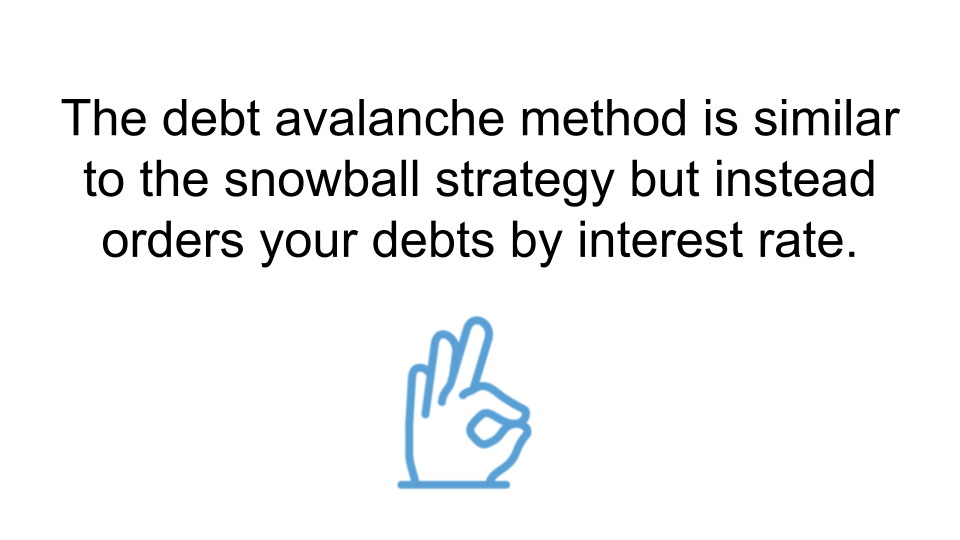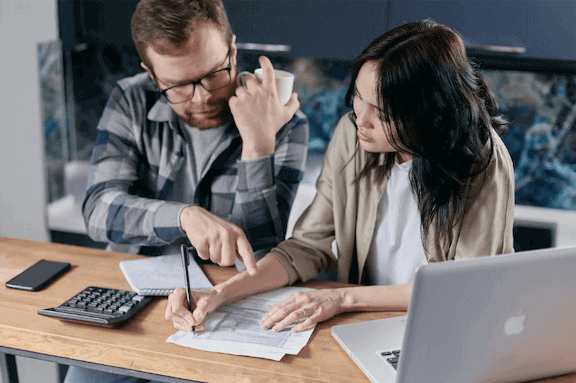In 2021, American household debt hit a record $14.6 trillion, shared by around 340 US citizens. This debt includes student loans, mortgages and credit card balances – leaving many struggling to manage with monthly repayments.
While it can seem very overwhelming, and act as an obstacle towards building on other financial goals, there are options that can be followed to alleviate some of this debt. This article will outline some of the best ways to help you repay and overcome debt to avoid slipping into a dangerous cycle of financial insecurity.
What are the Best Ways to Repay Debt?
Making the decision to repay your debt can seem like a daunting task. It will pay to be organized in the early stages, so that you are on top of all of your finances both incoming and outgoing.
Firstly, you should work out exactly how much debt you have, making a list for each bill that you owe. You should make notes of the details of each debt, including the name, type, balance, interest rate, payment terms and the minimum monthly payment that is due.
It is then worth figuring out exactly how much you can afford to pay off each month, essentially the exact maximum that you can pay off. This includes evaluating fixed outgoings such as rent or a mortgage, insurance and utilities, as well as extra spending on food and socializing. It is worth considering which arrears of your monthly spending you are able to cut back on, perhaps a subscription service or on takeaways for example.
A good idea to follow this to budget each month so that you can maximize the amount you are able to pay off in debt is adjusting the 50/30/20 rule. This rule is where you spend 50% of your monthly income on things you need, such as utility bills, rent and essential food. 30% can be spent on things that you want, such as gym memberships, subscription services and socializing for example. The final 20% should be saved. In order to pave the way for paying off more debt each month, you should try to cut down on the 50% ‘needs’ and 30% ‘wants’. This could include buying discount groceries in the supermarket, cutting down on energy usage and holding back on the expenses of socializing.
What are Three of the Top Debt Repayment Strategies?
1) The Snowball Method
The debt snowball method refers to when you build up momentum in paying back your creditors, similar to rolling a snowball that grows bigger across the ground.
You will need to list your debts by their balance and begin by paying off the smallest one as fast as possible. Ensure that you pay off the minimums on all other debt and then pay that extra towards the next debt in size on the list. As you start to pay off each balance, you will be able to free up more funds to make space to pay off other debts.
Each quick payoff can prove to be a quick win and help to boost your confidence with paying the debts off.
This method suits those best who want to experience quick gains while paying off their debts.
2) The Debt Avalanche Method
The debt avalanche method is similar to the snowball strategy but instead orders your debts by interest rate.
The debts are ordered from those with the highest interest rate to those with the lowest. You will then pay off the debt with the greatest interest rate debt as quickly as possible, as well as pay off the minimums on all other debts at the same time.
This method will help to cut back on the amount that you are paying off in debts on interest, as well as free up more cash that can be used to pay towards the other remaining debts.
This method suits those who want to save on interest, as well as those motivated to get out of their debts quickly.

3) The Debt Consolidation Method
Debt consolidation suits those best who may be too challenged to keep up with various alternative payments and due dates.
All of your outstanding debts are combined into a single account, and you must hold off on taking out any new loans or debts until these have all been paid off.
The new interest rate on the combined debts may appear higher than before, but you could end up saving yourself more money by avoiding missed and late payment additional fees. You will thus need to determine your blended interest rate to assess whether this best suits your situation.
This may suit those best who are able to commit to not using a credit card or acquiring more debt while they are paying off the debts that they already owe.
What are the Best Ways to Avoid Slipping Into Debt?
Once you have opted for a particular debt repayment strategy, it is worth considering the following tips to help you to avoid falling into another situation of cyclical debt.
- Start an Emergency Savings Account
You will certainly need an emergency savings account once you have paid off your debts. This can help to avoid you needing to take out an emergency loan that may be difficult to pay off if something unexpected takes place, such as housing repairs.
- Stick to a Budget
You will need to stick to a budget to help pay off any outstanding or remaining debts. This can be done using an app or a spreadsheet that will allow you to see all of your income and expenses laid out.
You can take off your fixed expenses from your income – such as rent or mortgage mortgages – and the remainder will refer to your free cash flow. This cash flow is the available money that you have to cover variable costs and pay off other potential loan payments and debt.
- Make Efforts to Earn Extra Income
Side hustles are a great way to earn extra money to secure an extra stream of cash flow and use these funds towards avoiding needing to take out any loans thus debts. This could include monetizing any special skills that you might have, such as teaching tutoring sessions, dog-sitting or making jewellery.
- Cut Down on Your Monthly Expenses
Reducing your monthly expenses can help to free up funds that can be put towards paying off further debts. This could include cutting back on subscription services, or replacing your bulbs with energy-efficient LED bulbs which cost less to run.


